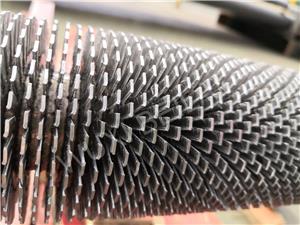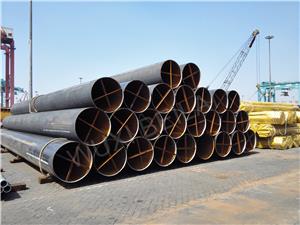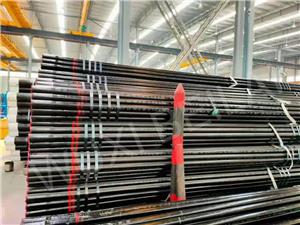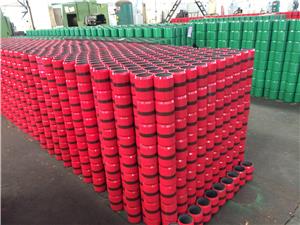Boiler Tubes: Essential Components for Efficient Heat Transfer
As a leading manufacturer of high-quality boiler tubes, BEILAI recognizes the critical role that these components play in optimizing the performance and safety of steam boilers. A boiler tube is a cylindrical component that carries water or steam through a heating system, playing a key part in the efficient transfer of heat. These tubes are subjected to extreme pressure and high temperatures, making their reliability essential for maintaining operational efficiency in power plants, industrial facilities, and various other applications.
In this article, we will explore the importance of boiler tubes, their types, manufacturing processes, and the factors that contribute to their longevity and performance. By understanding the key aspects of boiler tube selection and maintenance, you can ensure that your heat exchange system operates at maximum efficiency, minimizing downtime and repair costs.
Understanding Boiler Tubes: Purpose and Function
Boiler tubes are vital components within steam boilers, designed to facilitate the transfer of heat from combustion gases to water. As the combustion process generates heat, it is transferred through the tubes to convert water into steam. This steam is then used for various purposes, such as generating electricity, heating systems, and powering industrial machinery. The function of the boiler tube is to provide a stable and efficient medium for this heat transfer, ensuring the boiler operates effectively.
Boiler tubes are typically made from high-grade steel or alloy materials that can withstand high-pressure and high-temperature environments. They are available in a wide range of sizes, thicknesses, and materials depending on the application, with special attention paid to the corrosion, oxidation, and wear resistance properties of the materials used.
Types of Boiler Tubes and Their Applications
Boiler tubes are classified based on their materials, thickness, and applications. The following are some of the most common types used in steam boilers:
1. Carbon Steel Boiler Tubes
Carbon steel boiler tubes are widely used in low- to medium-pressure boilers. These tubes are highly durable and offer good heat transfer capabilities at relatively lower costs. Carbon steel tubes are often used in older systems or systems that operate at moderate temperatures and pressures. They are known for their excellent formability and ease of welding, which makes them a popular choice for manufacturers.
However, one limitation of carbon steel is its susceptibility to corrosion at higher temperatures. To extend their lifespan, carbon steel boiler tubes are often treated with coatings or special alloys to improve their resistance to oxidation and corrosion.
2. Alloy Steel Boiler Tubes
Alloy steel boiler tubes are made by adding elements such as chromium, molybdenum, or vanadium to the base steel. These additions enhance the tube's strength, heat resistance, and corrosion resistance, making them ideal for high-pressure and high-temperature applications. Alloy steel tubes are commonly used in power plants, chemical plants, and other industries where boilers operate under extreme conditions.
Some of the most common alloys used in boiler tubes include T22, T91, and T92, each designed for specific temperature and pressure ratings. These tubes can also be used in environments where the tube is exposed to acidic or corrosive gases, as the alloying elements protect against degradation.
3. Stainless Steel Boiler Tubes
Stainless steel boiler tubes are used in high-performance applications that require excellent resistance to both corrosion and high temperatures. Stainless steel contains chromium, which gives the material its resistance to oxidation, making it suitable for environments with corrosive agents or high humidity.
Stainless steel boiler tubes are often used in power generation plants, petrochemical plants, and other industries with stringent requirements for tube durability. They are ideal for applications where high heat transfer efficiency and long-term reliability are essential. Due to their superior resistance to corrosion, stainless steel tubes also offer an extended service life, reducing the frequency of maintenance and replacement.
4. Heat-Resistant Alloy Tubes
Heat-resistant alloy tubes are designed to withstand extreme temperature conditions, making them ideal for applications where the boiler tube will be exposed to temperatures well beyond the capabilities of standard carbon steel or stainless steel tubes. These alloys, which can include materials like Inconel or Hastelloy, are used in specialized industrial applications such as gas turbines, rocket engines, and high-temperature heat exchangers.
Heat-resistant alloys can maintain their strength and integrity even under extreme thermal stress, making them crucial for industries that require continuous, high-performance operation at temperatures exceeding 1,000°C.
The Manufacturing Process of Boiler Tubes
The manufacturing process of boiler tubes is highly specialized, as these components must meet stringent safety and performance standards. At BEILAI, we adhere to the most advanced manufacturing methods to ensure that our boiler tubes are of the highest quality. The process typically involves the following stages:
1. Material Selection and Alloying
The first step in the manufacturing of boiler tubes is selecting the right material. The choice of material depends on factors such as the operating temperature, pressure, and the fluid the tube will come into contact with. Alloy elements like chromium, molybdenum, and nickel are often added to the base material to improve its strength, heat resistance, and corrosion resistance. BEILAI uses premium-grade materials to ensure that our tubes meet the exact requirements of our customers’ specific applications.
2. Hot Rolling or Extrusion
Once the material has been selected, it is processed through hot rolling or extrusion to form the tube. In the hot rolling process, the raw material is heated to a high temperature and passed through rollers to reduce its thickness and form a cylindrical shape. In the extrusion process, the metal is forced through a die to create the desired tube shape.
Both methods ensure that the tube has uniform thickness, consistent properties, and the ability to withstand high pressure. The tubes are also cooled slowly to relieve internal stresses and improve their structural integrity.
3. Heat Treatment
After the tubes are formed, they undergo heat treatment to further improve their strength and durability. Heat treatment typically involves processes such as annealing, quenching, and tempering, which alter the material's microstructure and enhance its properties. This stage ensures that the boiler tubes can perform under high-pressure and high-temperature conditions.
4. Testing and Inspection
Quality control is a critical step in the production of boiler tubes. At BEILAI, each tube is thoroughly tested for defects, strength, and performance. Non-destructive testing methods, such as ultrasonic testing, eddy current testing, and hydrostatic testing, are used to detect internal and external flaws, ensuring the tubes meet industry standards. Our team also conducts dimensional checks to ensure that the tubes meet specific size and tolerances requirements.
5. Finishing and Coating
Finally, the tubes are polished or coated with protective layers to improve their resistance to corrosion, wear, and oxidation. Coatings may include oxide layers, enamel coatings, or other heat-resistant finishes that extend the life of the boiler tubes in demanding applications.
Boiler tubes are fundamental components of steam boilers, ensuring that heat is efficiently transferred to generate steam for various industrial applications. As a leading boiler tube manufacturer, BEILAI is committed to providing high-quality, durable tubes that meet the highest performance and safety standards.
Understanding the different types of boiler tubes, their materials, and manufacturing processes is crucial for selecting the right tube for specific applications. Whether for power generation, chemical processing, or high-temperature industrial use, BEILAI’s boiler tubes are designed to offer superior performance, longevity, and reliability.
Investing in quality boiler tubes is a key step toward enhancing the overall efficiency of your boiler system and minimizing maintenance and downtime. With BEILAI’s advanced manufacturing capabilities and commitment to excellence, we ensure that our customers receive the best-in-class products to meet their unique heat transfer needs.




